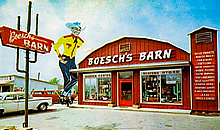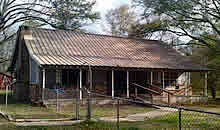Main Menu
Angelina County Data
Angelina County Communities & Places
Genealogy & History Links by USGHN
Important Angelina County Addresses
Sponsors
Angelina County Neighbors
Cherokee County, Texas
Houston County, Texas
Jasper County, Texas
Nacogdoches County, Texas
Polk County, Texas
San Augustine County, Texas
Trinity County, Texas
Other Websites
Welcome to Angelina County Texas Genealogy & History Network!
Welcome to the Angelina County, Texas Genealogy & History Network. Our purpose is to provide visitors with free resources for genealogical and historical research. To share your genealogy or history information, send an email to txghn@outlook.com and we will happily include it here. For other Texas Counties, visit the Texas Genealogy & History Network state website and go to the appropriate county. Thanks for visiting and good luck with your research! |
|
About Angelina County, Texas...

Angelina County is northeast of Houston in the East Texas Timberlands region of northeast Texas. Lufkin, the county seat and largest town, is northwest of Beaumont. The county is bounded on the north by the Angelina River and on the south by the Neches River and is gently rolling terrain, densely forested with pine and hardwoods.
The settlement by whites in the future Angelina County began before the Texas Revolution of 1836. The first deed on record, dated May 10, 1801, conveyed 5.5 leagues of land to Vincente Micheli from Surdo, chief of the Bedias Indians, in exchange for a white shirt, eight brass bracelets, a handful of vermilion, a fathom of ribbon, a gun, and fifty charges of powder and ball. The first Anglo settlers in the district were the Burris family, who in 1820 settled in the northern part of what is now Lufkin at a place then called Burris Prairie. Within a few years other families came from Alto and Nacogdoches, and from other states, to settle along the rivers. Mexican authorities made land grants in the area in 1834–35.
 Settlement was still thin when Texas won its independence. Angelina County was organized on April 22, 1846, when Nacogdoches County was divided. The first permanent settler after the county was formed is thought to have been George W. Collins. The population increased quickly thereafter due to the good farming land and to the rivers, which made steamboat transportation possible. The population reached 1,165, 196 of whom were slaves, in 1850. The first county seat was Marion; successively, Jonesville became county seat in 1854, Homer in 1858, and Lufkin in 1892. Lufkin was favored by the route of the Houston, East and West Texas Railway (now the Southern Pacific), which had been built in 1882 from Houston to Shreveport.
Settlement was still thin when Texas won its independence. Angelina County was organized on April 22, 1846, when Nacogdoches County was divided. The first permanent settler after the county was formed is thought to have been George W. Collins. The population increased quickly thereafter due to the good farming land and to the rivers, which made steamboat transportation possible. The population reached 1,165, 196 of whom were slaves, in 1850. The first county seat was Marion; successively, Jonesville became county seat in 1854, Homer in 1858, and Lufkin in 1892. Lufkin was favored by the route of the Houston, East and West Texas Railway (now the Southern Pacific), which had been built in 1882 from Houston to Shreveport.
Before the Civil War, a principal source of wealth in Angelina County was the raising of livestock, since most of the early settlers were not slaveholding planters able to concentrate on agriculture. After the war, livestock was largely supplanted by the lumber industry, and therefore the numbers of cattle did not increase proportionately with the population.
 Economically Angelina County improved greatly in the 1880s because of the arrival of the railroads. Exploitation of the county's pine and hardwood timber became possible, and lumber began quickly to return a bonanza. It was estimated that the county had 1.3 billion board feet of longleaf and a billion board feet of loblolly pine. After the railroads arrived, the foundation was laid for a way of life and an economy in Angelina County built upon timber and forest products. By 1900 there were at least seventeen sawmills operating in the county. The World's Fair of 1893 gave a boost to the popularity of southern pine as a building material, and thus to the new economic base of Angelina County.
Economically Angelina County improved greatly in the 1880s because of the arrival of the railroads. Exploitation of the county's pine and hardwood timber became possible, and lumber began quickly to return a bonanza. It was estimated that the county had 1.3 billion board feet of longleaf and a billion board feet of loblolly pine. After the railroads arrived, the foundation was laid for a way of life and an economy in Angelina County built upon timber and forest products. By 1900 there were at least seventeen sawmills operating in the county. The World's Fair of 1893 gave a boost to the popularity of southern pine as a building material, and thus to the new economic base of Angelina County.
The Great Depression hit Angelina County quite hard. By 1933 more than 2,500 residents were on relief rolls—about 10 percent of the county population. This was mainly because the timber industry in Texas was particularly vulnerable to the depression. The boom in housing and other businesses that depended on lumber ceased abruptly with the failure of banks and lending institutions and with unemployment. Many  Angelina County lumber companies were forced to close or to decrease their activities sharply. County inhabitants turned back to small farming and stock raising to feed themselves. The Civilian Conservation Corps for East Texas was headquartered in Lufkin during the depression. It served twenty-six counties and seventeen camps in efforts to bring about financial recovery.
Angelina County lumber companies were forced to close or to decrease their activities sharply. County inhabitants turned back to small farming and stock raising to feed themselves. The Civilian Conservation Corps for East Texas was headquartered in Lufkin during the depression. It served twenty-six counties and seventeen camps in efforts to bring about financial recovery.
The county supports one daily newspaper, the Lufkin Daily News, and two weeklies, the Diboll Free Press and the Zavalla Herald. Recreational institutions include the Texas Forestry Museum, the Lufkin Historical and Creative Arts Center, and the Ellen Trout Zoo, all at Lufkin.
The county has a total area of 865 square miles, of which 798 square miles is land and 67 square miles (7.7%) is water. The population recorded in the 1850 Federal Census was 1,165. The 2010 census recorded 86,771 residents in the county.
 Neighboring counties are Nacogdoches County (north), San Augustine County (northeast), Jasper County (southeast), Tyler County (south), Polk County (southwest), Trinity County(west), Houston County (west), and Cherokee County (northwest). The county seat is Lufkin. Other communities in the county include Burke, Diboll, Hudson, Huntington, Zavalla, Redland, Alco, Bald Hill, Beulah, Cedar Grove, Central, Clawson, Davisville, Dolan, Dunagan, Durant, Ewing, Herty, Homer, Jonesville, Marion, Moffitt, Oak Flat, Peavy, Platt, Pollok, Prairie Grove, Redland, Redtown, Rocky Springs, Shady Grove, Shawnee, Shawnee Prairie, Thomas Crossing, and Woodlawn.
Neighboring counties are Nacogdoches County (north), San Augustine County (northeast), Jasper County (southeast), Tyler County (south), Polk County (southwest), Trinity County(west), Houston County (west), and Cherokee County (northwest). The county seat is Lufkin. Other communities in the county include Burke, Diboll, Hudson, Huntington, Zavalla, Redland, Alco, Bald Hill, Beulah, Cedar Grove, Central, Clawson, Davisville, Dolan, Dunagan, Durant, Ewing, Herty, Homer, Jonesville, Marion, Moffitt, Oak Flat, Peavy, Platt, Pollok, Prairie Grove, Redland, Redtown, Rocky Springs, Shady Grove, Shawnee, Shawnee Prairie, Thomas Crossing, and Woodlawn.
Angelina County, Texas Records
Birth Records - The Texas Department of State Health Services has records from 1903 to present. Records for the last 75 years considered private and will only be provided to certain individuals. To obtain current information on who may obtain a record, how to submit a request and an official request form, see the Texas Department of State Health Services website or write to Texas Vital Records, Department of State Health Services, P.O. Box 12040, Austin, TX 78711-2040.
For older birth records you will have to write to the County Clerk of the applicable county. The existence of birth records prior to 1903 will vary widely from county to county. Local historical societies and genealogy collections in local libraries may be able to provide some information.
Death Records - The Texas Department of State Health Services has records from 1903 to present. Records for the last 25 years considered private and will only be provided to certain individuals. To obtain current information on who may obtain a record, how to submit a request and an official request form, see the Texas Department of State Health Services website or write to Texas Vital Records, Department of State Health Services, P.O. Box 12040, Austin, TX 78711-2040.
Marriage Records - The Texas Department of State Health Services can provide a verification letter of marriage for Texas marriages from 1966 to present. This is NOT a marriage license. To obtain a certified copy of a marriage license you must contact the County or District Clerk in the county or district where the marriage took place.
Local historical societies and genealogy collections in local libraries may be able to provide some information.
Divorce Records - The Texas Department of State Health Services can provide a verification letter of divorce for Texas divorces from 1968 to present. This is NOT a copy of the divorce decree. To obtain a certified copy of a copy of the divorce decree you must contact the County or District Clerk in the county or district where the divorce took place.
Local historical societies and genealogy collections in local libraries may be able to provide some information.




